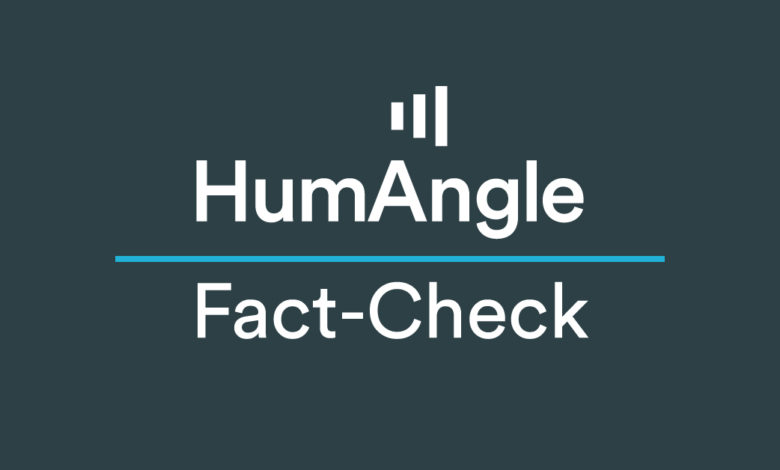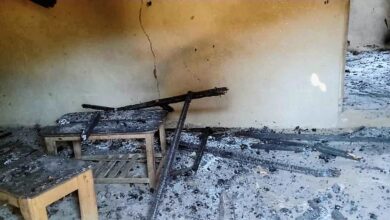Fact-check: Is there evidence for Governor Masari’s claim that political enemies of APC are sponsors of Boko Haram?

The Katsina State governor, Aminu Masari, recently claimed that enemies of the All Progressives Party (APC), the ruling party in Nigeria, are sponsoring Boko Haram terror attacks in Northern Nigeria so that they could be voted into power in the 2023 elections.
Although the governor didn’t mention the names of the “enemies of APC,” he clarified his statement by tagging politicians who intend to contest for elections in 2023 as the said enemies.
A fact-check of this claim has shown there is no evidence that the terrorist groups rely on fundings from politicians or political parties. The allegation made by the governor is, at best, politically motivated and with no evidence to support it.
Further checks revealed that the insurgency groups in Nigeria rely on lucrative criminal activities such as kidnapping for ransom and robberies to fund their organisations and have no substantial link to any Nigerian political party or politician.
Full Text
On July 20, Governor Masari was reported to have claimed that Boko Haram terrorism and insurgency in the North West is receiving sponsorship from enemies of his party, APC.
He said, “Most of the bandits and Boko Haram attacks facing the Northern part of the country are sponsored by some politicians who are enemies of the present APC government at both federal and state,” he said.
“During the administration of President Goodluck Jonathan, there were multiple bombs in Maiduguri, Kano, and even Abuja.
“The Kano bombing then killed more than 500 people. Mosques, churches and roads were closed due to insecurity but today, God has prevented us from such insecurity but we have forgotten.
“Today, politicians who are willing or intending to contest 2023 elections are sponsoring banditry because the way the bandits mastered how to operate guns and by how they specialised in ambushing soldiers, we should know that there is someone behind it.
“They are saying we dislodged the PDP administration because of insecurity, so they want to make use of insecurity to also send APC away, which is why all APC should be vigilant.”
Similar Claims Against APC in 2014
In 2014, an Australian member of parliament, Franz Obermays, claimed that leading figures of APC are “always associated with radical Islam and its terrorists groups”.
Mr. Obermays, according to a report by The Cable, named states under the APC in the North East and accused them of financing terror.
In 2014, another member of UK parliament also called for an inquiry into the relationship between members of APC and Boko Haram.
Rumours and allegations against Ali Modu Sheriff, former governor of Borno State, over financing Boko Haram was spread widely between 2014-2015.
Before May 2015, the APC operated as an opposition party to the PDP which Mr Sheriff served as Acting Chairman of National Working Committee.
Boko Haram is Against All Politicians
All factions of Boko Haram are hostile to democracy and are intolerant to any form of political participation or affiliations.
In several videos released by the Jama’atu Ahlussunnah Lid Da’awati Wal Jihad, the notorious leader of the Boko Haram faction, Abubakar Shekau, was heard describing democracy as “taghut”- an Arabic word for “ungodly” or “satanic”.
In a rebuttal against the late Ja’afar Mahmud Adam, a popular and charismatic religious leader in Northern Nigeria, Shekau said all forms of political participation are satanic and members of political parties are infidels.
“Like other Salafi-jihadi groups, Boko Haram rejects every system perceived to have originated from a Judaeo-Christian Europe, from Western-style education to secular government to democracy,” wrote Audu Bulama Bukarti, analyst with Tony Blair Institute for Global Change.
“The group brands democracy as taghut (an idol worshipped other than Allah) and treats Muslims who participate in elections and electioneering activities as infidels.
“It treats every person who takes part in democracy by casting ballots or vying for elective posts as a viable target. The group justifies attacking Muslims by citing their participation in democratic elections.
“For example, in claiming responsibility for a January 2017 mosque bombing that killed a professor and three others, a factional leader of the group, Abubakar Shekau, said it carried out the attack because the university was mixing “Islam with democracy”.
How Boko Haram is Funded
In 2018, a UN report identified extortions, charitable donations from members, smuggling and kidnappings as part of the ways the terrorist group is funded.
“The predominance in the region of the cash economy, without controls, is conducive to terrorist groups funded by extortion, charitable donations, smuggling, remittances and kidnapping,” the report says.
“In Nigeria, 111 schoolgirls from the town of Dapchi were kidnapped on 18 February 2018 and released by ISWAP on 21 March 2018 in exchange for a large ransom payment,” the report added.
Conclusion
The claim that enemies of APC, opposition parties, are sponsoring terrorism in Nigeria fails the test of verification, with no evidence to support it.
The claim is false, falling in the genre of political propaganda aimed at discrediting the opposition, just as a similar allegation was made against the APC in 2014.
The doctrines of Boko Haram do not allow members to participate, collaborate, or work with any member of political parties as they consider any form of democracy ungodly. Besides, overwhelming evidence points to the fact that Boko Haram gets its funding through robberies, kidnappings, extortions and donations from its members.
This fact-check is a partnership between HumAngle Media and the Dubawa 2020 Fellowship (by the Premium Times Centre for Investigative Journalism) in promoting the ethos of “truth” in journalism and enhancing media literacy in Africa.
Support Our Journalism
There are millions of ordinary people affected by conflict in Africa whose stories are missing in the mainstream media. HumAngle is determined to tell those challenging and under-reported stories, hoping that the people impacted by these conflicts will find the safety and security they deserve.
To ensure that we continue to provide public service coverage, we have a small favour to ask you. We want you to be part of our journalistic endeavour by contributing a token to us.
Your donation will further promote a robust, free, and independent media.
Donate Here




